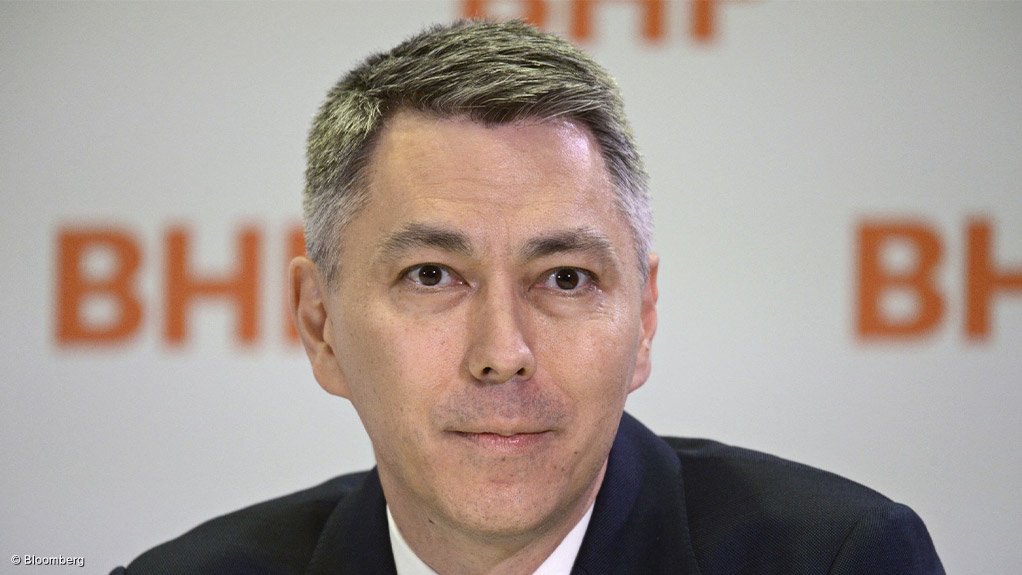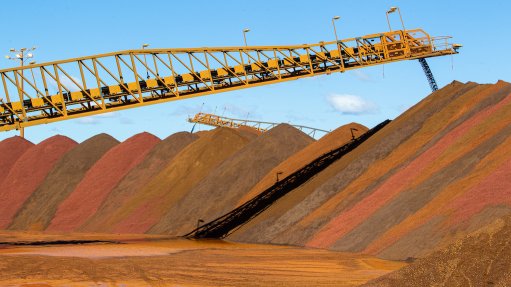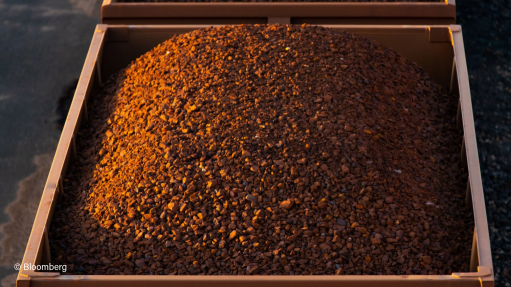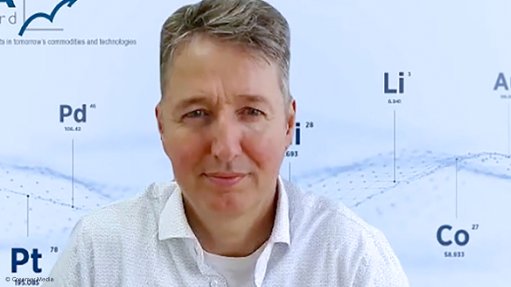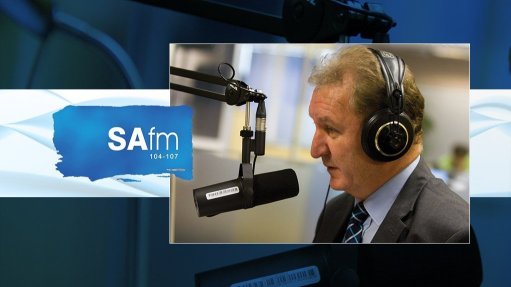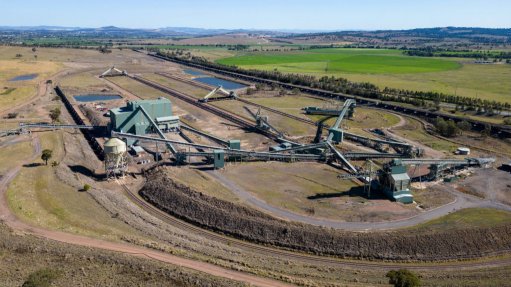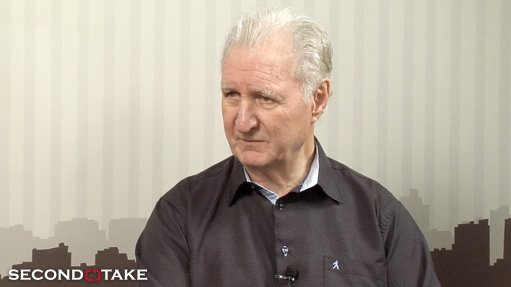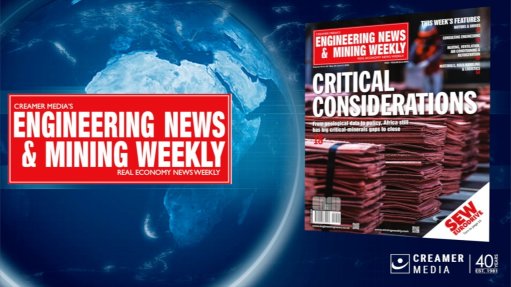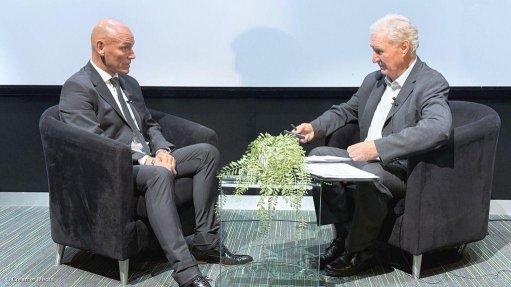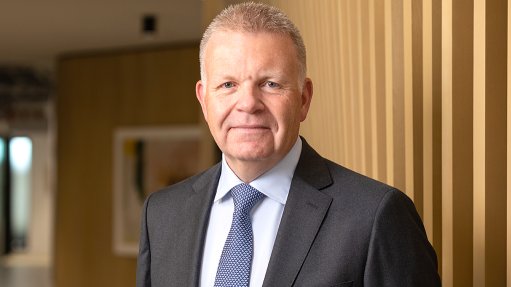Small set of common ESG standards should govern access to capital for critical minerals investment - BHP
BHP CEO Mike Henry has called for a “small set of common standards” covering environmental, social and governance (ESG) to underpin the access to capital required to unlock investment in the critical minerals needed for the transition to electric vehicles and renewable energy generation.
Speaking at the International Energy Agency’s (IEA’s) inaugural critical minerals summit in Paris, France, Henry argued that there were currently too many standards for the same ESG dimensions.
“This leads to confusion and dissipated effort,” he said, while noting that investment in the production of minerals such as copper, nickel, lithium and some steelmaking raw materials was lagging energy transition requirements.
Using copper as a case study, BHP estimated that about $250-billion in growth capital to 2030, in addition to sustaining capital, was needed to support the decarbonisation needed for a “plausible 1.5 degrees scenario”.
“Currently committed growth projects over this period only amount to around $40- or $50-billion today. More projects need to be identified, permitted and given the green light by those who are to invest in them,” Henry said.
Addressing a gathering that included several government Ministers, including US Energy Secretary Jennifer Granholm, who cautioned about the potential for critical minerals supply to be “weaponised”, Henry called for a global convergence of ESG and governance standards.
“We need a small set of common standards, upheld by all, and where performance against those standards is a greater and increasing determinant of access to capital.”
Such investment should be done with the least possible impact to the environment.
Miners, he added, should be granted access to resources based on the value they create, including for host communities and First Nations peoples.
“Opening a mine, done well, creates sustainable wealth and jobs [and] it brings tax revenues which, in turn, fund public services like health and education.”
Granholm added that regulatory conventions needed to be “aligned like never before” to ensure ongoing security of supply.
“We are going to have to think creatively about more than just how to do this work, but how to do it right – we’re in a race to save our planet and our people and we can’t make that race a race to the bottom.”
IEA director Fatih Birol said the issue of ESG standards harmonisation would feature during the closed portion of the conference and had also been identified as a priority by the IEA, which has already started raising concerns about the need for scaled-up investment to improve security of supply and to diversify supply chains.
In a recent report, the IEA highlighted the concentration of supply currently, with the Democratic Republic of Congo dominating cobalt supply, China holding half of planned lithium chemical plants and Indonesia representing nearly 90% of planned nickel refining facilities.
This point was underlined by European Commissioner for Internal Market Thierry Breton who said the European Union was determined not to “replace a fossil fuel dependency with a raw material one”.
“We know that some could weaponise these dependencies against us," Breton added, noting the price that had been paid recently in the bloc following Russia’s invasion of Ukraine.
Meanwhile, Henry also highlighted the potential difficulties in ensuring ongoing security of supply.
"This is going to be hard, as the grade or the percentage of metal in a given volume of ore is falling in existing operations.
"This means that more ore is going to be mined that doesn't need to be mined just to stand still.
"Newly discovered and developed deposits are, on average, incrementally lower grade as well; they're increasingly hard to find [and] oftentimes deeper and oftentimes smaller.
"Opportunities are being pursued in jurisdictions with less well developed or less established mining industries, institutions and governance.
"And, of course, societal expectations in respect of ESG and how value gets created for all stakeholders has grown, and rightly so."
Comments
Announcements
What's On
Subscribe to improve your user experience...
Option 1 (equivalent of R125 a month):
Receive a weekly copy of Creamer Media's Engineering News & Mining Weekly magazine
(print copy for those in South Africa and e-magazine for those outside of South Africa)
Receive daily email newsletters
Access to full search results
Access archive of magazine back copies
Access to Projects in Progress
Access to ONE Research Report of your choice in PDF format
Option 2 (equivalent of R375 a month):
All benefits from Option 1
PLUS
Access to Creamer Media's Research Channel Africa for ALL Research Reports, in PDF format, on various industrial and mining sectors
including Electricity; Water; Energy Transition; Hydrogen; Roads, Rail and Ports; Coal; Gold; Platinum; Battery Metals; etc.
Already a subscriber?
Forgotten your password?
Receive weekly copy of Creamer Media's Engineering News & Mining Weekly magazine (print copy for those in South Africa and e-magazine for those outside of South Africa)
➕
Recieve daily email newsletters
➕
Access to full search results
➕
Access archive of magazine back copies
➕
Access to Projects in Progress
➕
Access to ONE Research Report of your choice in PDF format
RESEARCH CHANNEL AFRICA
R4500 (equivalent of R375 a month)
SUBSCRIBEAll benefits from Option 1
➕
Access to Creamer Media's Research Channel Africa for ALL Research Reports on various industrial and mining sectors, in PDF format, including on:
Electricity
➕
Water
➕
Energy Transition
➕
Hydrogen
➕
Roads, Rail and Ports
➕
Coal
➕
Gold
➕
Platinum
➕
Battery Metals
➕
etc.
Receive all benefits from Option 1 or Option 2 delivered to numerous people at your company
➕
Multiple User names and Passwords for simultaneous log-ins
➕
Intranet integration access to all in your organisation



